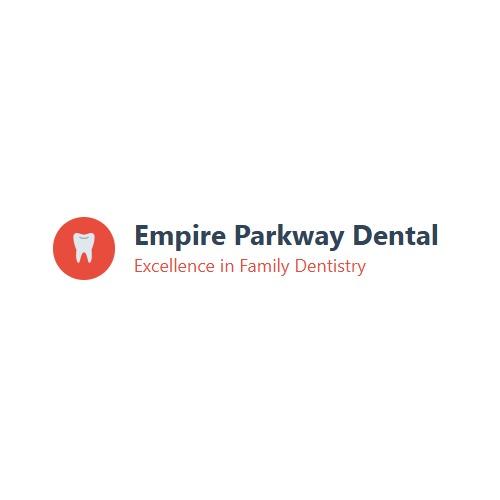Attention is the cornerstone of productivity, learning, and meaningful engagement with the world around us. For many, focusing attention comes naturally, but for people in ADHD, maintaining sustained focus can feel like an ongoing battle. Attention Deficit Hyperactivity Disorder (ADHD) is a neurodevelopmental condition characterized by persistent symptoms such as inattention, hyperactivity, and impulsivity that interfere with daily functioning. Unlocking attention, therefore, requires a blend of understanding the mind’s complexities and applying effective methods for ADHD control and management.
Understanding ADHD: More Than Just Inattention
ADHD is often misunderstood as simply being inattentive or hyperactive. However, its symptoms ADHD are multifaceted, encompassing difficulties with executive functions such as working memory, emotional regulation, and self-control. These challenges manifest differently across individuals, meaning that strategies for managing ADHD must be personalized and comprehensive.People in ADHD often experience trouble organizing tasks, following through on instructions, and managing time efficiently. These symptoms impact not only academic and professional performance but also relationships and self-esteem. Consequently, managing ADHD is not merely about controlling attention deficits; it’s about unlocking a potential that lies beneath the surface of these challenges.
The Mind: The Core of Attention
At its core, attention is a cognitive process controlled by networks within the brain, particularly those involving the prefrontal cortex. For people in ADHD, these neural circuits often function differently, leading to variations in how attention is allocated and sustained. This neurobiological basis explains why ADHD control is not as simple as willpower or discipline; it requires a deeper understanding of brain function.Research indicates that individuals with ADHD have lower activity in areas responsible for executive function and self-regulation. This neurological insight is crucial because it shifts the perspective from blaming oneself for poor attention to recognizing the need for tailored interventions. Understanding the mind’s role allows people in ADHD and their support networks to adopt compassionate and effective methods for managing symptoms ADHD.
Methods to Manage ADHD: Unlocking Attention Through Strategy
While medication is a common approach to ADHD control, it is far from the only method. Many people in ADHD find that combining medical treatment with behavioral strategies, environmental adjustments, and lifestyle changes yields the best results.
Behavioral Strategies
Behavioral interventions focus on changing the environment and habits to reduce distractions and enhance focus. Techniques such as breaking tasks into smaller steps, using timers, and creating structured routines help manage ADHD symptoms by making attention more manageable. Cognitive-behavioral therapy (CBT) is another powerful tool that helps individuals develop coping mechanisms and improve emotional regulation.
Environmental Adjustments
The environment plays a pivotal role in attention management. For people in ADHD, minimizing distractions—such as turning off unnecessary notifications, creating quiet workspaces, and using organizational tools—can significantly improve focus. Additionally, incorporating movement breaks and physical activity can help regulate hyperactivity and improve concentration.
Lifestyle Changes
Lifestyle factors, including diet, exercise, and sleep, have a profound impact on ADHD control. Regular physical activity increases dopamine levels, which are often lower in people in ADHD, thereby enhancing attention and mood. Adequate sleep is also essential because sleep deprivation exacerbates ADHD symptoms. Nutritional approaches, such as maintaining balanced blood sugar levels, further support cognitive function.
The Role of Technology in Managing ADHD
In today’s digital age, technology offers innovative solutions to help people in ADHD unlock attention. Apps designed for task management, reminders, and mindfulness can aid in organizing daily activities and reducing cognitive overload. Wearable devices that monitor physiological signals provide real-time feedback, helping individuals recognize and regulate their focus levels.However, technology can be a double-edged sword; excessive screen time and digital distractions can worsen symptoms. Therefore, using technology mindfully and strategically is critical in managing ADHD effectively.
Personalized Approaches: No One-Size-Fits-All
Because ADHD manifests uniquely in every person, managing it requires personalized strategies. Some may benefit more from medication combined with therapy, while others might find success with lifestyle adjustments and behavioral techniques. The key is self-awareness—understanding which symptoms ADHD impact you most and tailoring interventions accordingly.For people in ADHD, this often involves trial and error, patience, and the support of professionals such as psychologists, psychiatrists, and coaches who specialize in ADHD. Family and social support systems also play an essential role in reinforcing positive habits and providing encouragement.
Unlocking Attention Beyond ADHD: Universal Lessons
While this article focuses on ADHD control, the principles of unlocking attention apply broadly. Everyone struggles with distractions in a world filled with competing stimuli. The fusion of understanding the mind’s workings and applying methodical approaches can enhance focus and productivity for all.For example, mindfulness meditation—often recommended for ADHD—has benefits for anyone seeking to improve attention. Similarly, breaking down tasks and organizing environments to minimize distractions can improve efficiency universally.
Conclusion: Where Mind Meets Method
Unlocking attention is a journey where the mind meets method, especially for people in ADHD. It demands a deep understanding of the neurological and psychological aspects of ADHD symptoms and a commitment to applying personalized strategies that work in real-life settings. Through a combination of behavioral techniques, environmental management, lifestyle changes, and sometimes medication, individuals with ADHD can gain control over their attention and unlock their full potential.Ultimately, managing ADHD is not about eliminating symptoms but learning to navigate them with resilience and insight. Attention is a skill—one that can be cultivated with the right tools and mindset. When mind meets method, attention is no longer elusive but accessible, empowering people in ADHD to thrive in all areas of life.



